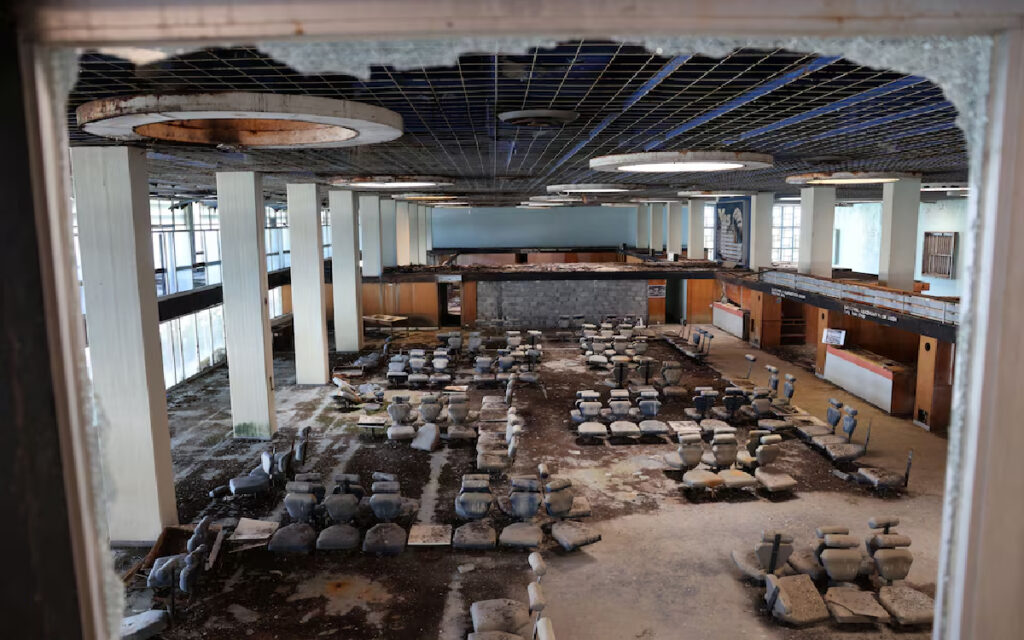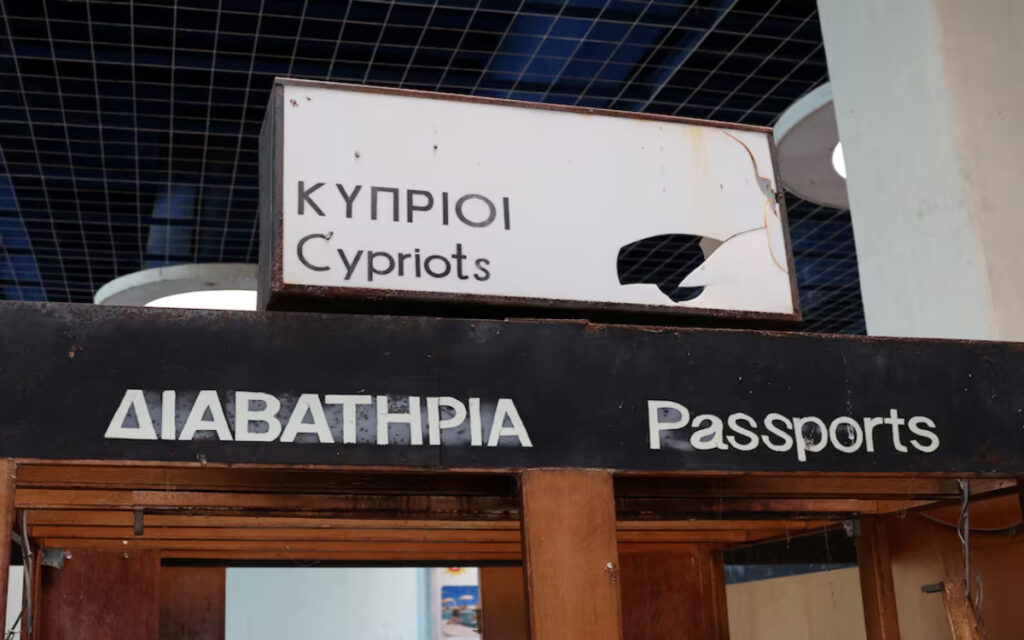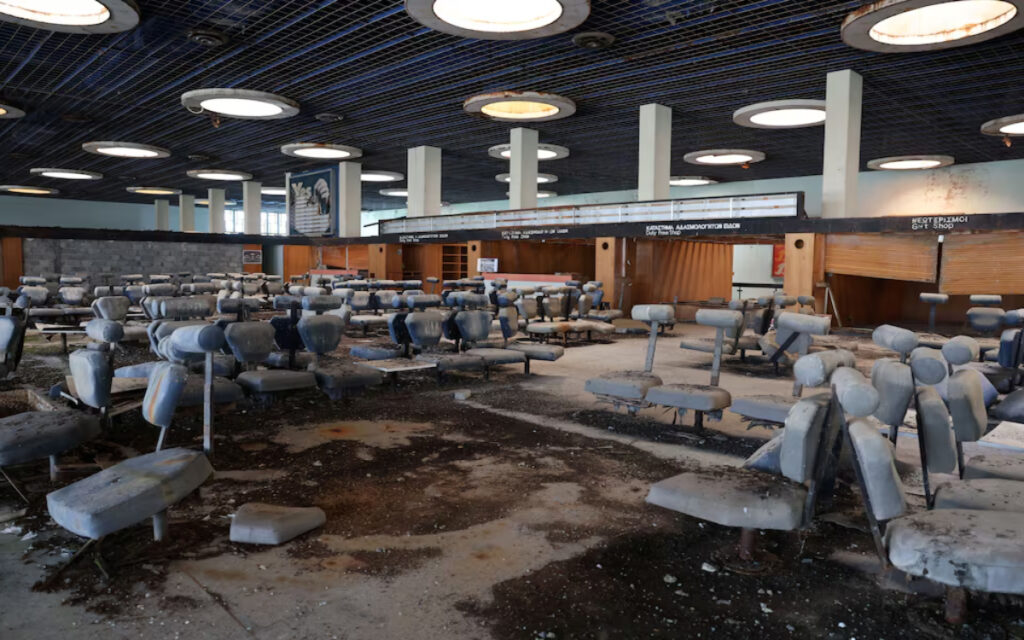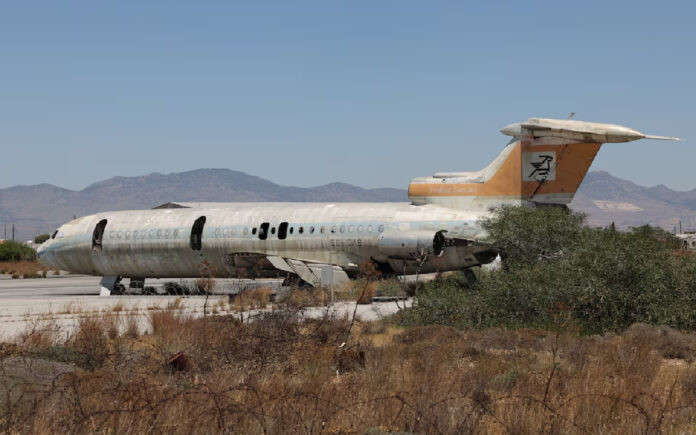Nicosia, Cyprus: Nicosia International Airport, once a thriving aviation hub, has remained desolate for half a century, embodying the enduring legacy of Turkey’s 1974 invasion of Cyprus, which followed a brief coup orchestrated by Greece. Perched on a hill on the western outskirts of Nicosia, Cyprus’ divided capital, this airport has become a somber symbol of a conflict that forever altered the island’s landscape.
Constructed in 1968 and utilized by the British RAF during World War Two, the airport is now an eerie monument to the past. Its large airport sign, though partially faded, is still discernible. The only life here is the occasional pigeon cooing in the decaying terminal and the wind howling through shattered windows.

The airport’s story took a dramatic turn in 1974 when it became the site of fierce fighting between Greek Cypriot forces and the invading Turkish army. This confrontation led to the United Nations intervening to establish a ceasefire, leaving the airport to fall into disrepair. As of July 20, this year marks 50 years since Turkey’s military action, triggered by a short-lived coup by the Greek military junta. Cyprus remains divided, with Greek Cypriots in the south and Turkish Cypriots in the north, separated by a U.N.-administered buffer zone. Despite numerous attempts, reunification talks have yet to bear fruit.

In the wake of the conflict, Greek Cypriots swiftly developed a new air travel hub in Larnaca, about 50 km (31 miles) from Nicosia. This airport has remained Cyprus’s primary international gateway ever since.
Also Read | Collision Near Singapore Sparks Fire on Two Oil Tankers; Crew Members Airlifted
Nicosia International Airport, now located within a U.N. buffer zone, has been off-limits for decades due to safety concerns. The terminal stands as a time capsule of the 1970s; peeling advertisements for shoes and far-flung holidays still cling to its walls. The departure lounge, enveloped in dust and pigeon droppings, features rows of seats that evoke the aesthetics of early science fiction films.

Aleem Siddique, spokesperson for the United Nations peacekeeping force in Cyprus (UNFICYP), commented, “It is actually frozen in time … Although there were several attempts over the years by the sides to reach an agreement to see the airport being re-opened, restored, rehabilitated, the sides were unable to reach an agreement so gradually the condition of the airport had deteriorated.” Siddique further noted, “No planes have left or arrived since 1974.”
On the runway, the remains of a solitary Trident passenger jet, punctured by bullet holes, stand as a stark reminder of the airport’s turbulent history.



